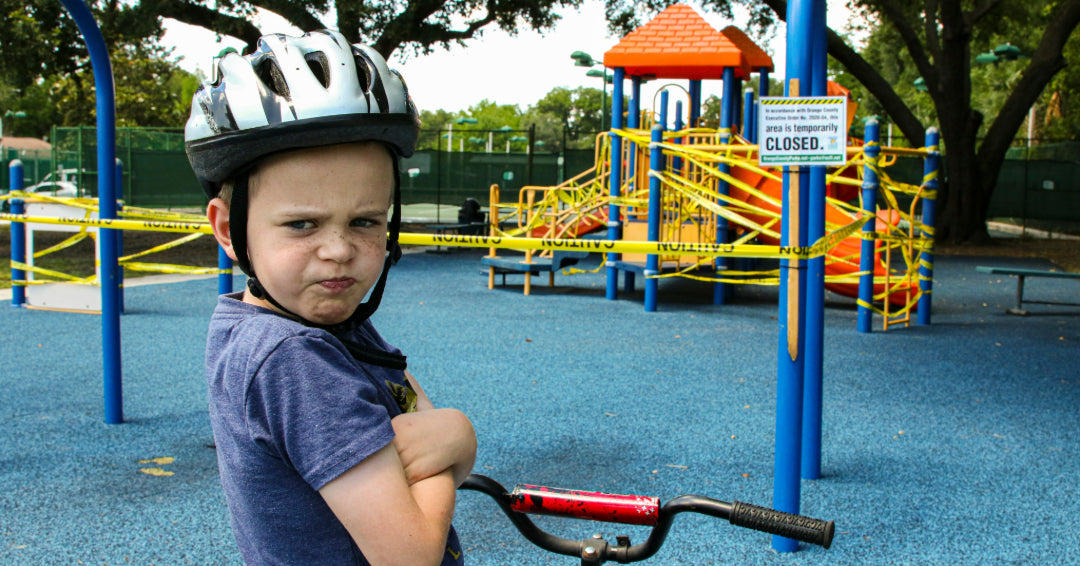Some young children are more prone to have trouble controlling their emotions than others. Parents of toddlers who have frequent temper tantrums often feel embarrassed, especially when these episodes occur in public. It is especially difficult when older children have angry outbursts that are disproportionate to the trigger. Consider these points next time your child experience an angry outburst or temper tantrum.
How to Help a Child Manage Anger

(1) Look for signs that angry behavior is tied to hunger.
Oftentimes this is the most obvious and easiest problem to solve. The child may just be hangry, so keep snacks on hand at all times. The amount of food toddlers consume varies from day to day. What is adequate caloric intake one day may be insufficient the next. Factors like a particularly active, busy day or a growth spurt require increasing a child's food intake. Also, remember to keep in mind that the quality of the food is more important than quantity. Since toddlers tend to be grazers, they often end up filling up on snacks, leaving little room for nutritious meals. Children's stories about eating healthy emphasize the importance of eating a well-balanced diet in terms that little ones will understand.

(2) Evaluate the amount and quality of sleep a child is getting each night.
Just like nutritional needs change, so do sleep requirements. When kids are growing, they may need a couple of extra hours of rest every night. Try adjusting your child to an earlier bedtime and you may be pleasantly surprised to see a dramatic reduction in the quantity and length of temper tantrums. You may also need to temporarily reintroduce naps for a child who seems to need some extra sleep. If co-sleeping with a parent, it may be time to think about encouraging toddlers to sleep in their own bed where sleep is less likely to be interrupted.

(3) Do your best to stay calm, cool and collected.
Despite the urge to yell at your child for the disruptive behavior, it's important for parents to keep their emotions in check. Parents who are pushed to their limits can lash out at kids who have frequent temper tantrums. Children who have trouble managing their anger need parents who are confident, patient, and consistent in how they respond. Shouting at a child will only escalate the situation. However, if children witness parents who are controlled and measured in their reaction, they will learn how to model this behavior. Reading >children's books about temper tantrums is an excellent way to talk to your little ones about ways to control their anger, especially when they are in a calm, stable emotional state.

(4) Remember praise your child for good behavior.
When you witness your toddler handling a difficult situation without getting angry, be sure to acknowledge it. Practice reinforcing behaviors that are positive instead of focusing all of your energy on the negative outbursts. Sometimes kids have temper tantrums to get attention, for better or worse. So try to turn the tables by giving a child more of your time and words of encouragement during the good moments. Look those moments when a child shares a toy with a sibling or exhibits other signs of good behavior. Focus on those opportunities to reinforce all of the positive actions a child demonstrates.

(5) Seek a professional assessment if anger persists.
There are a number of disorders that could be fueling your child's anger. The sooner that you diagnose the problem, the more quickly you will be on your way to getting the help needed. Some areas of concern include anxiety, ADHD, a learning disability, or a sensory processing issue. Kids on the autism spectrum are prone to more frequent, intense anger outbursts that can be challenging for parents to quell. A trained child psychologist or other professional can help you get to the root cause of the anger issue, which is an important first step toward eliminating behavior tied to anger.

|
Helpful Books for Toddlers Who Hit Others |

